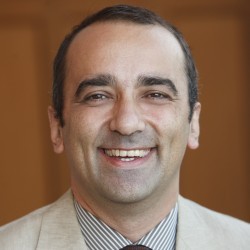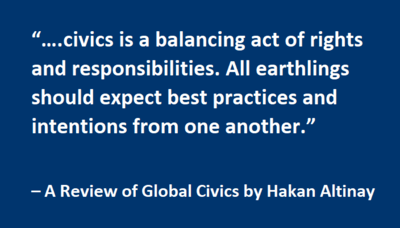Political Prisoners in Turkey: Al-Monitor
Political Prisoners in Turkey: Al-Monitor
 Read the article from Al-Monitor.
Read the article from Al-Monitor.
Read about the trial from Human Rights Watch.
Read a detailed report from Human Rights Watch on the baseless charges.
Read about the work of Hakan Altinay as the director of the European School of Politics and the president of the Global Civics Academy.
Read Altinay’s YaleGlobal articles on climate change and Erdogan’s commanding victory in the 2014 Turkish election.
Read an essay about the state of global governance by Altinay.
Read a review of Global Civics: Responsibilities and Rights In an Interdependent World:
“Altinay’s call for lessons in global civics might unnerve corporate and government leaders who evade responsibility for cross-border crises – proliferation of nuclear weapons, emissions that change the climate, genocide and economic disparities. The goal of civics is to inspire students to become active, responsible citizens. The logical step after global civics classes would be greater attention on global governance.
 “Too often global issues are political footballs, difficult to grapple, and they’re kicked to the bottom of national agendas. National leaders gripe about global criticism or unfairness, while eluding dialogue and compromises. All but the most adept politicians underestimate citizens’ willingness to explore new topics and form independent opinions in agreement with strangers on distant continents. But concerted education programs, moral outrage at evil and public embrace of complex issues have upended traditions. Slavery, suppression of women’s rights and colonialism are examples. The internet, social media and the public’s willingness to engage with strangers on specific causes allows the reports and moral outrage to spread more quicky.
“Too often global issues are political footballs, difficult to grapple, and they’re kicked to the bottom of national agendas. National leaders gripe about global criticism or unfairness, while eluding dialogue and compromises. All but the most adept politicians underestimate citizens’ willingness to explore new topics and form independent opinions in agreement with strangers on distant continents. But concerted education programs, moral outrage at evil and public embrace of complex issues have upended traditions. Slavery, suppression of women’s rights and colonialism are examples. The internet, social media and the public’s willingness to engage with strangers on specific causes allows the reports and moral outrage to spread more quicky.
“….civics is a balancing act of rights and responsibilities. All earthlings should expect best practices and intentions from one another.”